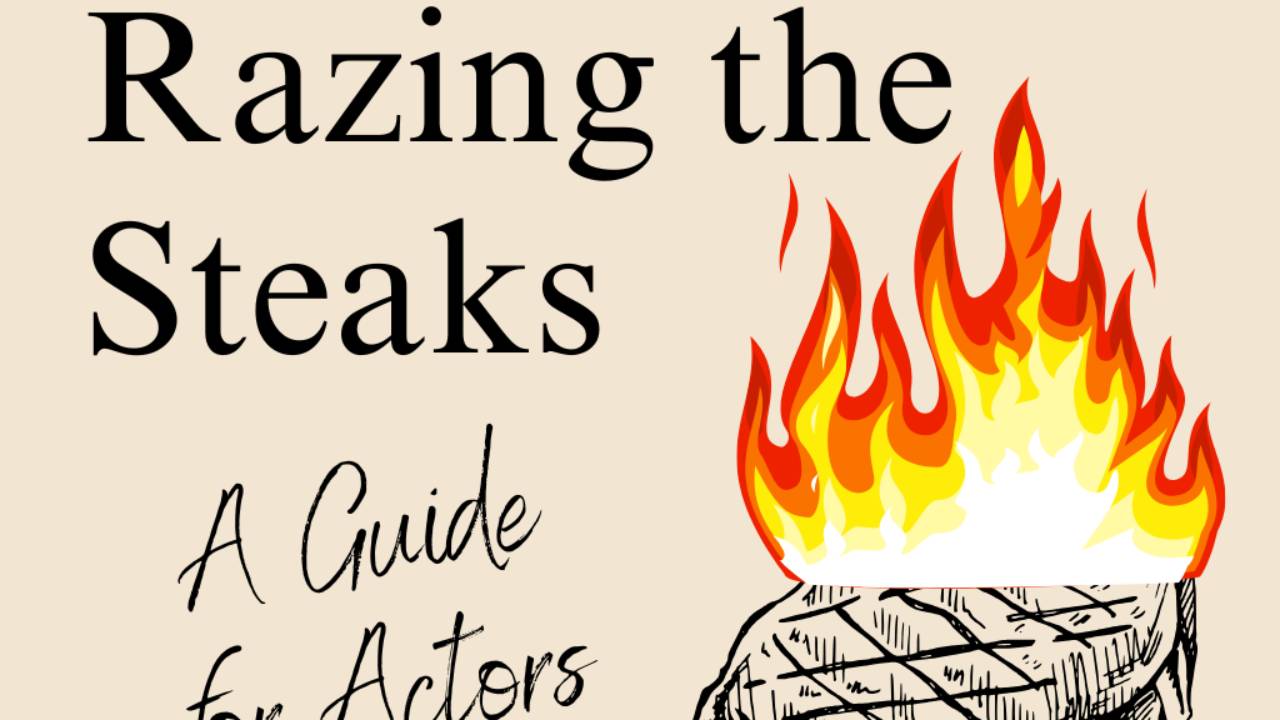Raising the Steaks don't make sense anymore
Aug 13, 2025
RAZING THE STEAKS
(…because “raising the stakes” doesn’t mean much anymore, either)
Some phrases in acting have been repeated so often that their original intent has been diluted. “Raise the stakes” is one of them. (I recently reframed Stanislavski's "objectives" in another post.)
You’ll hear "raise the stakes" on set, in class, in rehearsal:
“Hey, raise the stakes on this one.”
Everyone nods like they’ve just been handed the secret to acting… but what happens next? Some actors speed up. Some get louder. Some get more "emotional" (blech). Some do all of those things.
And sometimes, nothing changes except that the moment feels more played and less lived.
The problem isn’t the note itself. The problem is that “raise the stakes” has become a catch-all phrase without any agreed meaning.
----
Where the phrase came from:
The original term, to my understanding, comes from gambling, specifically poker. The “stakes” are the amount of money (or whatever is being wagered) that’s at risk of being lost. To “raise the stakes” means to increase what you’re putting on the line, which in turn increases tension, urgency, and risk. You'll fight harder to win.
In acting terms, this should mean:
Increase what you stand to LOSE if you FAIL.
But somewhere along the way, we stopped translating it that specifically. Now oftentimes it’s just shorthand for “more.” And “more” is not a note.
----
Reframing "Raise The Stakes"
If you don’t know what you’re fighting for, you won't know how to raise it.
There are, of course, a myriad of ways to figure out what you have to lose. It comes down to a mixture of using the clues on the page and seeing the clues that aren't on the page.
This takes a bit of trial and error, trusting your gut, and being ready to pivot.
I've got 2 tools that I use, personally, for this.
1) "Make It Worse"
2) "Conspiracy Theories"
We're going to focus on "Make It Worse" for now.
----
Make It Worse
Let's start with the "simpler" of the two, and the option that is closer to the original "raise the stakes."
I simply call this "make it worse." Why? Not because it's any better than "raise the stakes" but, rather, simply because we're not as familiar with it so we can appreciate it with fresh exploration.
This tool can live in both the script analysis process and on the fly.
The whole "make it worse" process? Figure out what you have to lose, and then... well... make it worse.
That was about as helpful as handing you a glass of tabasco sauce when you needed water. So let's look at an example, instead.
In your scene, you're running late for the bus on the way to work. That's all we really know.
You decide what you have to lose: The respect of your boss, the trust of your peers, maybe some docked pay if you're out of paid time off.
That sucks, right? But let's make it worse.
This is the 3rd time in 2 weeks you've been late... Ok. That's already worse. Let's keep going.
Your boss has already given you a warning that if you're late again, you will be fired. Which means you'll lose your insurance for your son, who has monthly doctor's appointments.
Boom.
Now, this is no longer running late for a bus. This is racing to save your son's life.
Only when you have that in your bones can you "raise the stakes" in a way that affects your spine, breath, tempo, and connection… instead of just making things louder or faster.
----
Adjusting in real time
Ideally, you will have a whole dynamic range of interpretations before you go on stage or in front of the camera. So "raising the stakes" or something simlar should be something you're expecting at some point and you'll know how to adjust your tools.
But what about when you're caught off guard?
When someone calls “raise the stakes” in the moment, you ultimately have two options:
- Translate it yourself on the spot. Plug it into your "make it worse"/"conspiracy theory" scenario and allow yourself to "double down" like a good poker player. Trust your gut and leap.
- Ask for specificity. Collaborate instead of guessing. Give the director choices. "I could see this going two ways. 'ABC' and 'XYZ.' Which would you like first?" This prompts the director to be more specific and/or realize that their note didn't land the way it was intended and they should clarify. Either way, you get more info.
If you get to this point on set or in the room and you receive "raise the stakes" or something similar and you don't have any ideas, unfortunately... that's on you. You missed something in the script or you locked into an idea too soon, causing you to miss out on the larger plethora of ideas.
If/when that happens, it's simply a learning opportunity. You'll muscle through. You'll be fine. The director will make sure of it. And you'll also remember that moment moving forward and do everything you can to be in that embarrassing spot again.
----
The takeaway
“Raise the stakes” isn’t a magic wand. It’s an invitation to increase what’s at risk... but you can only do that if you know what the risk is.
So the next time you hear it, don’t just turn up the volume. Build the world. Make the loss personal. And then? Yes — raze those steaks. Burn them down to the bone.